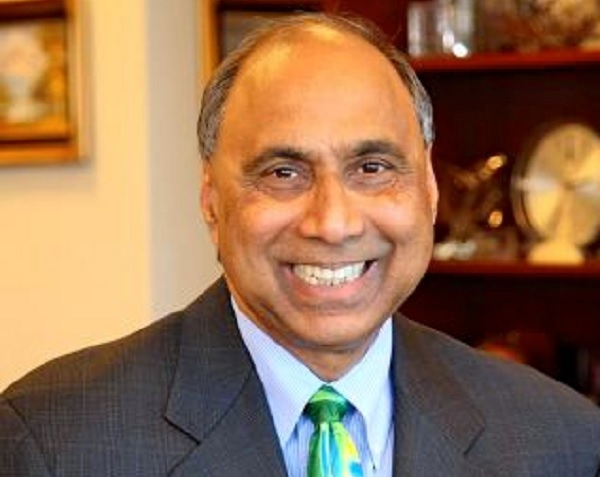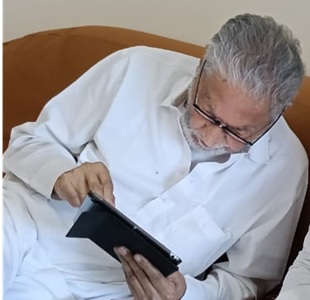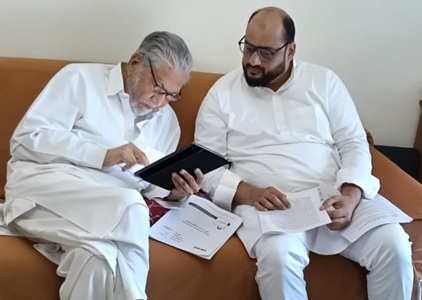FRANK ISLAM
Observed on the first Monday in September, Labor Day is an annual celebration of the social and economic achievements of American workers. The holiday is rooted in the late nineteenth century, when labor activists pushed for a federal holiday to recognize the many contributions workers have made to America’s strength, prosperity, and well-being.
U.S. Department of Labor, History of Labor Day
Labor Day is a day to celebrate all workers and all forms and levels of work. On September 2, this Labor Day in 2024, because of the Olympics and the positive spirit displayed in France, there is an additional reason to celebrate in America.
This reason is not simply the medals that were won there, but also the contributions from athletes and those from all walks of life who joined and worked together to make these Olympics such an incredible success.
The Olympic Spirit
Before the Olympics began, this success seemed improbable and potentially impossible. France as a country was becoming increasingly divided politically, economically, and socially. The majority of the French people said they were opposed to the Olympic Games being sponsored in Paris, France and many would not watch them.
Then, the Olympics began on July 26 with a phenomenal Opening Ceremony, which included athletes from around the world floating in boats down the river Seine. lighting of the Olympic flame, sending it up in a cauldron to fly in the skies above Paris, and placing replicas of the interlaced Olympic rings on the Eiffel Tower.
During his Opening Ceremony comments, Tony Estanguet, a three-time French Olympic champion and President of Paris 2024:
Said to the people watching, “The Games have reminded us that in France, even if we have a hard time agreeing on things, in the moments that count, we can come together and combine all our strengths for a single purpose.”
Thanked those who made the Olympics possible including the volunteers to whom he said, “Thank you to the 45,000 volunteers: you have come here from 155 different countries, from all walks of life: teachers, retired people, nurses, students…and your enthusiasm will light up these games.”
Said to the athletes, “For the next sixteen days, you will be the best version of humanity. You’ll remind us that the emotions of sport form a universal language we all share.”
Estanguet was accurate. For those next sixteen days, the athletes kept us spellbound, not only with their accomplishments but with their kindness shown to each other, whether winning or losing.
That demonstration of athletic heroism and generosity led Estanguet, in his comments at the Closing Ceremony on August 11, to say, “We knew you would be brilliant, but you were magic. You made us happy. You made us feel alive. The world needed these emotions so much.”
In his speech at the closing ceremony, International Olympic Committee President Thomas Bach, a former Olympian himself, built on Estanguet’s remarks, saying to his fellow Olympians and to the viewers of the Olympics:
Your performances were amazing. You competed fiercely against each other. Every contest on the edge of perfection. Every performance sparking excitement around the world. You showed us what greatness we humans are capable of.
This inspired all of us and billions of people around the globe. Thank you for making us dream. Thank you for making us believe in a better world for everyone.
We know that the Olympic Games cannot create peace. But the Olympic Games can create a culture of peace that inspires the world. This is why I call on everyone who shares this Olympic spirit: let us live this culture of peace every single day.
The American Spirit
The Olympic spirit, and the work done by the American athletes there, provided the fuel for reigniting the American spirit.
In part, that reigniting was due to the members of the American Olympic team winning the most medals — a total of 126 gold, silver, and bronze medals. In larger part, however, it was due to learning the stories of the medal winners and the hard work they, and others, had put in to excel in their sport.
Gold medal winners such as Olympian swimmer Katie Ledecky and gymnast Simone Biles and professional basketball players LeBron James and Steph Curry were well-known. Less well-known were gold medal winners such as: Sydney McLaughlin-Levrone; a four time gold medal winner and world record-holding 400 meter hurdler, Ryan Crouser, three time gold medal-winning shot putter; and Noah Lyles, 100 meter gold medalist, and thus the unofficial “fastest man in the world.” Little known were other medal winners such as: “quirky” Stephen Nedoroscik, whose performance on the pommel horse enabled the USA men’s gymnastics team to win bronze, Jasmine Moore, bronze medal winner in the women’s long jump and triple jump, and Kristen Faulkner, gold medal winner in the women’s cycling road race and the women’s track cycling pursuit team.
It’s not just the medal-winning Americans who were inspiring at the Olympics. It was all the 594 Olympic team members who, through their hard work and dedication, committed themselves to excelling. After the Olympics, Brad Stulberg, author of The Practice of Groundedness, wrote a New York Times guest essay titled “What the Olympics can Teach Us About Excellence,” in which he states:
Excellence is not perfection or winning at all costs. It is a deeply satisfying process of becoming the best performer — and person — you can be. You pursue goals that challenge you, put forth an honest effort, endure highs, lows and everything in between, and gain respect for yourself and others. This sort of excellence isn’t just for world-class athletes; it is for all of us. We can certainly find it in sports, but also in the creative arts, medicine, teaching, coaching, science, and more.
At the end of his piece, Stulberg observes:
At a time of disconnect and alienation, the pursuit of excellence offers a powerful and necessary path to intimacy with ourselves, our work, and our communities. It is, at root, what it means to be the best humans we can be.
Steve Kerr, coach of the USA men’s Olympic basketball team, has a first-hand and front row understanding of what that construction of personal excellence and coming together means for Americans and the American spirit
Speaking at the Democratic National Convention, Kerr said:
And when we won, the American flag raised to the rafters, the national anthem playing, gold medals draped around the necks of our players, it was the proudest moment of my life.
During his speech Kerr took his commentary well beyond the Olympics, stating:
Americans know the greatness of this nation doesn’t come from any one of us, but from each of us doing our part to build a more perfect union.
The American Worker and Labor Day
Stulberg and Kerr are correct. There are American workers everywhere across this great nation and around the world who are committed to being the best they can be, and to working together with others to get their work done in a way that makes a difference.
Those workers are committed to excellence in all lines of work. They are on the playing field and the battlefield; on the shop floor and in the office, in the classroom and the operating room, in small businesses and big businesses; in union companies and non-union companies; in the private sector and the public sector.
Those workers are in jobs that are full-time and part-time, and in jobs that are paid and unpaid. In today’s America, many of these workers work multiple jobs, and many of them are self-employed.
To borrow a sentence from Michelle Obama’s powerful speech at the Democratic National Convention, those workers say, “If we see a mountain in front of us, we don’t expect there to be an escalator waiting to take us to the top. We put our heads down. We get to work.”
American workers have been saying things like that since this country’s founding. Their “social and economic achievements” though the centuries have been driving forces in making this country great.
Today’s workers continue to be driving forces and major contributors to building “America’s strength, prosperity and well-being” in order to keep this country great, and to make it a better and fairer place for all. They are the primary source of the American Spirit.
To all those workers we say “Thanks. Job well done. Carry on. Happy Labor Day.”






0 Comments